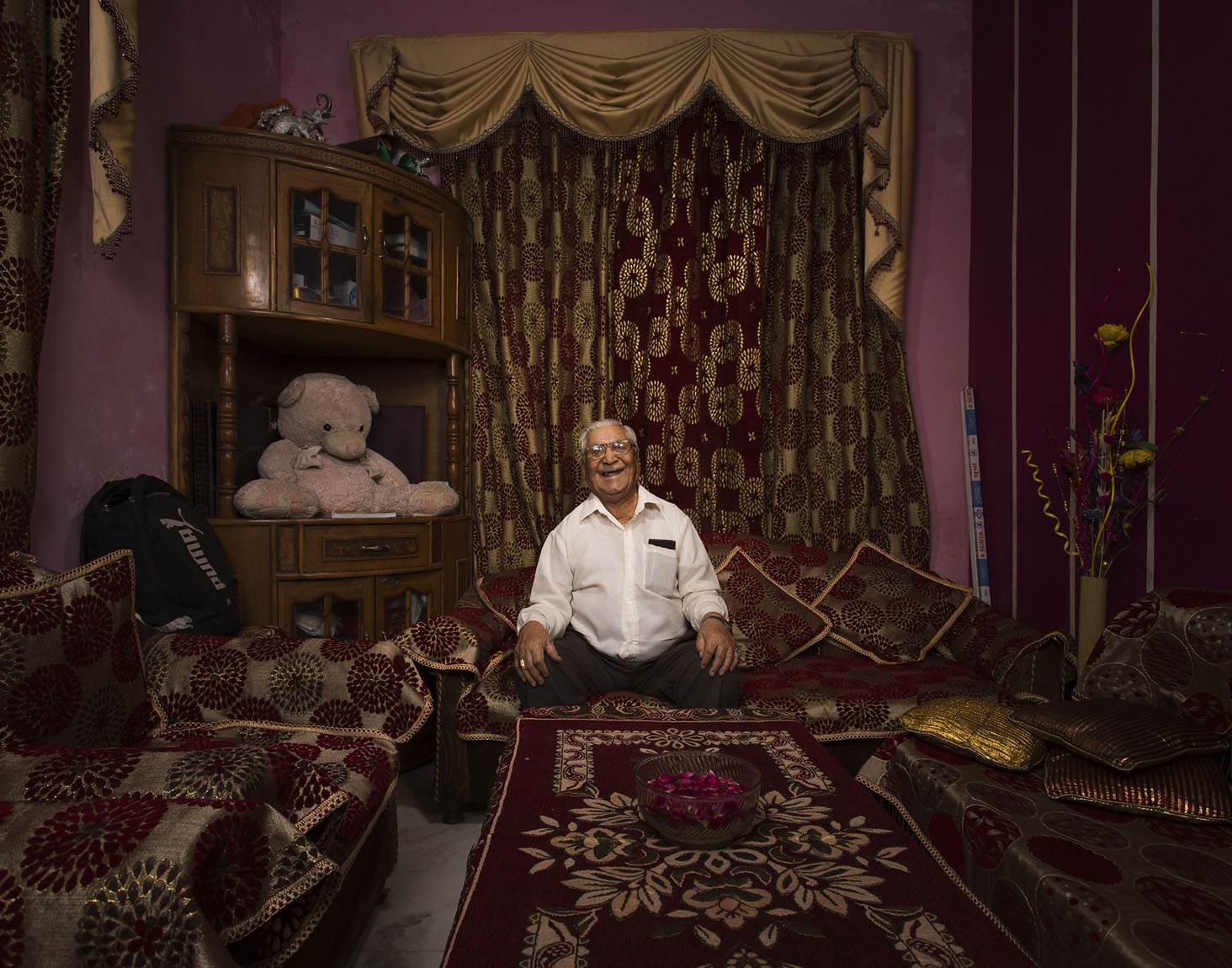My name is Gimat La Hura and I was born on March 10th, 1923 in a small village near Lahore, what is now Pakistan. I studied in my local school and I was an excellent student and so my higher studies I was send to a better school in a village called Allibagh, it's in Jammu and Kashmir State. I even used to get some pay from the school - 5 rupees a month. Which at that time was very good money, especially for a kid.
After graduating school, I had the option to join the family business, but I declined and joined the Indian Army on November 5th, 1941. Many of my relatives were either on the police force or in the Army. I didn't join the Army because I was patriotic or anything, I merely figured I was resigned to choosing between the Army and family business.
At the time I looked at fighting in the war like I was simply fighting for the British, who ruled us. I was sent to basic training in Lahore. Once I started training, I was consumed by the conflict that was going on, and I realized how much I truly wanted to fight. They taught us all the basics of combat. The more I learned, the more I was prepared for the war, and I wasn't worried about dying. After three months of training in Lahore, we were sent to train further in the Jabalpur section of Madhya Pradesh, India for about nine months.
From there, I was transferred to Peshawar, then to a company in Delhi. From Delhi, we were transferred to another company in Bangladesh. I didn't see much action myself as I was mostly responsible for the truck repairs and maintenance and for the most part stayed behind the front lines.
On one instance in 1944, when we were en route to Chittagong, Bangladesh to supply our soldiers with food and artillery shells, we came across Japanese soldiers. It was late at night, so we couldn't see very well. We didn't know how many Japanese soldiers there were. As a mechanic, I had responsibility to fix the trucks and make decisions if one of our vehicles was compromised. So I ordered everyone to take their positions and prepare for an ambush. I presume the Japanese realized we were aware of their presence because they didn't attack.
I was based in Bangladesh for almost two years and then had a short leave. After more movement, I was ultimately sent to Mumbai, where we boarded ships that took us to Malaya for combat. We spent good 6 days on those ships before finally arriving there.
Upon arrival in Malaya, we set up a base camp. I was an Army mechanic and craftsman, tasked to maintain our vehicles. We unloaded supplies and equipment from the ship, and then stored it in a garage.
In Malaysia, not only were we up against the Japanese, Subhas Chandra Bose's Azad Hind Fauj (Indian National Army) was also there, fighting for Indian independence. I remember they had the Indian flag hoisted very high at their camp. Even though I wasn't fighting for him, I respect what he was trying to do for our country. If it wasn't for him we might not have received independence until much later.
During our deployment, we had a pretty good relationship with our British superiors. We fought and conducted ourselves as one Army. Two captains in particular, Cpt. D. Beur and Cpt. D. Halliwal were good to us. If our family ever had issues, they would be empathetic to our plight. They weren't cold or overly demanding.
In August 1945, we received news the Japanese had surrendered. We all celebrated the good news. I retired from the Army on May 25th, 1946, and we went back to our families and villages. Soon, Pakistan and India separated. Pakistan was declared a Muslim country, and there were many Hindus who no longer wanted to live there. Hindus began to face violence in Pakistan. At the time, we lived in Jhelum, Pakistan. We fled with the other families and moved inside the Indian border to an Ambala, a civil Army camp. We stayed there for about a year, then left for Chandigarh in Punjab state.
Our family was in a dire situation once we left the camp, and were trying to figure out how to survive. We decided to move to Delhi in 1948 and start a business selling painting material. The business wasn't very successful, so I moved onto another job that I worked until March 1982. I had married my first wife Krishna Wandi in 1943, but she died in 1951. I married my second wife, Rambyari and had three daughters and one son. One of my sons sadly passed in 2005.
These days, I have a grandson who's a real estate agent. I help him at his business from time to time. My family takes care of me very well, and that's the reason I'm still here.
